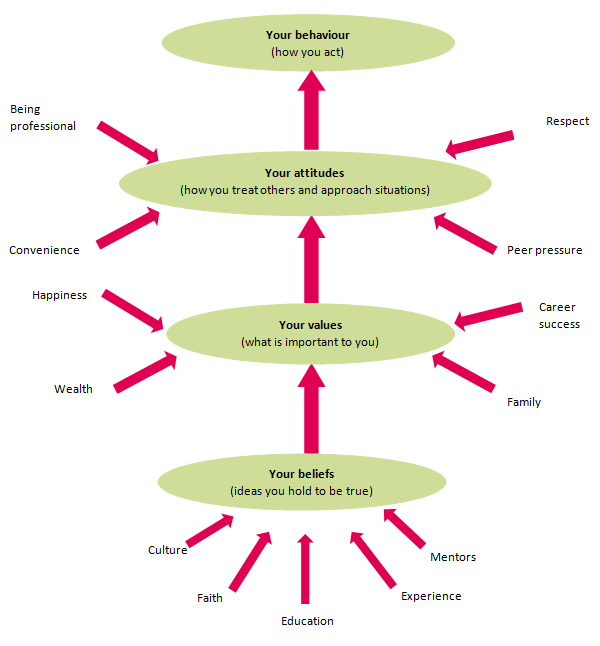This is a Marathon, Not a Sprint

8 Keys for Leaders for Thriving and Surviving in this Environment
Posted on April 8, 2020 By John Foley – Managing Director, Safer Buildings Coalition
You may have heard the phrase “Life on Life’s Terms.” Now, more than ever, this applies.
It seems unfair, but we are often forced to make important business and life decisions while going through a major life-changing event – be it a birth, death, divorce, whatever. Or a pandemic, which upends the world as we know it. We must make solid decisions at a time when our focus and clear priorities are least available to us.
As leaders, we are thrust into the spotlight as our industry, our community, our organization, our faith group, and our family take cues from us to help them decide how to feel and act at this moment.
This is when we must rely on the bedrock of our principles and act in the best interests of all the above.
These principles are:
- Culture
- Faith
- Education
- Experience
- Mentors
And I would add to that:
At a time like this, we need to seek the “Wisdom of the Team” to inform the critical decisions we must make in the days, weeks and months ahead.
And then we must decide, and lead.
A Marathon, Not a Sprint
What can we learn from Marathon runners? A Forbes article from December 5, 2013 entitled Five Business Lessons From Marathon Training by David Schnurman offered some excellent insights into the question. Here they are:
- Keep Your Commitment
You can’t let difficult challenges prevent you from following through with a plan.
- Have a Clear Goal and Strong Plan
When you hit adversity, not having a plan isn't always the smartest choice.
- Go in With the Right Mindset
If you have the right mindset and a positive attitude, no outside force can stop you in your journey.
- Run Through the Wall
In business, we come up against walls all the time. They key is having the right partner or mentor to help see you through it.
- Experience New Things
As entrepreneurs, it's in our DNA to shake it up and learn new things.
If You Are Stressed Out, You’re Probably Right Where You Ought to Be
The Holmes and Rahe Stress Scale measures the aggregate stress score that various life factors have on our overall stress level and emotional health. By assigning a stress score to various life events, you can scientifically predict your overall emotional health and the likely susceptibility to illness.
If you currently live on Planet Earth and have a modicum of awareness, your stress level is off the charts. Which means you are seeing things clearly and are probably right where you ought to be. It’s OK!
By using this The Holmes and Rahe Stress Scale calculator you can test your current stress level. Use the tool, and if you are like most people today, your score will be above 300, meaning you have a high or very high risk of becoming ill in the near future.
If you have suffered some of the worst effects of the coronavirus pandemic – loss of a spouse or friend, you are personally ill, or loss of your job –, then your score is even higher.
All the following are contributors to stress on the scale and may be in play for you currently (With stress points in parentheses):
Death of spouse (100), Death of close family member (63), Personal injury or illness (53), Fired at work (47), Change in health of family member (44), Business readjustment (39), Change in financial state (38), Death of close friend (37), Change to a different line of work (36), Change in responsibilities at work (29), Spouse begins or stops work (26), Change in living conditions (25), Revision of personal habits (24), Change in work hours or conditions (20), Change in residence (20), Change in school/college (20), Change in recreation (19), Change in church activities (19), A moderate loan or mortgage (17), Change in sleeping habits (16), Change in number of family get-togethers (15), Change in eating habits (15).
8 Keys - The Cliff Notes Version
1. Tell yourself the truth.
- Accept Reality
2. Have Faith
- This will pass
3. Act “As If”
- Demonstrate calm leadership. Decide and demonstrate that we will emerge from this and be OK. As a leader your words and deeds have weight - be aware of this.
4. Rely on Mentors and the Wisdom of the Team
- This is not the right time to be isolating or disconnecting. This is not the time to freelance communications.
5. You Need Information. Be Judicious in Selecting Your Sources.
- Hit the brakes before sharing a story on social media or work emails. Validate sources.
6. Take Care of Yourself
7. Have a Plan
- Don’t veer. Stay focused.
8. Innovate and be Opportunistic
- Instead of focusing on the things you can’t do right now, what are the things you can do?
8 Keys for Leaders for Thriving and Surviving in this Environment - Long Version
- Tell yourself the truth.
What’s happening right now is real-world harsh stuff. Accept that reality. And it won’t be fixed overnight. You are, and will continue to be, on a rollercoaster that swings from fear to optimism to hope to setback and all over again.
- Do what you can to stay in the middle of the range.
- Avoid the highs and lows.
- Breathe.
- Accept that this is a marathon and not a sprint.
- Work on your mental stamina as well as your physical stamina.
- Have Faith
This WILL pass. We will make incremental steps of progress to an eventual outcome where we are back to work, interacting, and living our lives.
- Our world, our nation, our society, our communities, our families, and you personally are going through some egregious crap.
- We will emerge from this.
- Believe. Meditate. If you are so inclined: Pray.
- Act “As If”
Our team, our company, our community, our family – look to their leaders to decide how they should feel about the current situation. If the pilot of an aircraft or the captain of the ship are freaking out, the passengers don’t stand a chance.
In front of your team, your community, and your family, demonstrate calm leadership. Decide and demonstrate that we will emerge from this and be ok, and act As If this is actually what will happen. Remember that as a leader, your words and deeds have weight. Be aware of this.
And then, in your “moments of doubt and pain,” share these feelings in private, but openly and honestly, with your mentor, your best friend, your pastor, or your trusted advisor.
- Rely on Mentors and the Wisdom of the Team
This is not the right time to be isolating or disconnecting.
- We have access to wonderful tools for remote collaboration. Use them. Talk it out.
- Don’t freelance your communications! – work out the messaging with your team and speak to your organization with one voice.
- Speak candidly and honestly with your mentors. Be real. Ask them to be real in return.
- Seek the Wisdom of the Team – But then, DECIDE. You are the Leader.
- Ensure your Team is committed to emerging from decisions with a consistent and unified voice, even if they have personal disagreements. Distractors and Detractors are divisive and destructive.
- You Need Information. Be Judicious in Selecting Your Sources.
This is a novel coronavirus. Definition: A novel coronavirus (nCoV) is a new strain that has not been previously identified in humans.
No one person or agency is the absolute authority on this situation – Yet. But there are people and organizations who have dealt with pandemics before. These are the experts we need data from to base our decisions upon.
- Our collective knowledge will evolve. Seek experts and filter out the noise.
- Avoid the over-stated and sensationalistic story. Seek Balance
- Hit the brakes before sharing a story on social media or work emails. Validate sources.
- Take Care of Yourself
You are supposed to be stressed out right now. Sometimes just shouting “I CAN’T DO THIS!” is effective in letting the steam out of our fears so we can inhale and keep moving forward.
- Breathe.
- Go for a walk. Exercise.
- Get rest / sleep.
- Drink a warm beverage. Eat healthy.
- Go easy on the alcohol.
- Try not to over-rely on sleep aids.
- Don’t obsess or binge on constant TV News. Read a book, listen to music, or watch a movie. (Not a pandemic movie).
- Be kind to yourself and others
- Pet your dog
- Have a Plan
Under the circumstance it may need tweaking. But the fundamentals of the plan you started the year with are likely still valid. Don’t veer. Stay focused.
- If the budget needs reforecasting – then do it.
- Don’t procrastinate.
- Consider impacts on your team members. They will remember how you deal with this when it is all over.
- Be decisive.
- Re-communicate the plan to your team.
- Innovate and be Opportunistic
Instead of focusing on the things you can’t do right now, what are the things you can do?
- A Florida-based commercial real estate professional told me this week – with many buildings being empty or virtually empty – this is a good time to do upgrades to building systems like air conditioning. It’s difficult to shut down AC in a hot climate when people are in the building.
- A major southwest university IT manager is transitioning their systems for teleworking and remote learning. These are not only immediately beneficial but will have lasting impact. Be thoughtful.
- Get knowledgeable about the CARES act and other resources that are becoming available to help your business keep the fires lit. Use these tools to keep your staff employed and paid and the ship floating.
- Make sacrifices – consider deferring rather than cutting
- If you need to make cuts – help people land as softly as possible. Make that your job.
Conclusion
We are a strong species that has outlasted millennia of overwhelming odds. Absorb and appreciate that.
A marathon is 26.22 miles (or 42.195 kilometers if you measure that way). It is not infinite. Marathons end. This is Our Marathon. When you look back, will you be proud of the way you ran your race?
Some moments along the way will be inspiring and will hold beauty. Look for them. Celebrate them. Use them as fuel to keep going. Just like a marathon, there is a finish line. Keep putting one foot in front of the other.
You’ve got this!
Please Share!
About the Author
 John Foley is a Connectivity Evangelist and Public Safety Advocate, currently serving as Managing Director of the Safer Building Coalition, and as a Senior Advisor with Cathedral Consulting, LLC. John Foley is a Connectivity Evangelist and Public Safety Advocate, currently serving as Managing Director of the Safer Building Coalition, and as a Senior Advisor with Cathedral Consulting, LLC.
John has a deep understanding of the connectivity industry, providing leadership and service for over 40 years, with particular expertise in strategy development, executive leadership, public speaking and education.
Resources:
|





 John Foley is a Connectivity Evangelist and Public Safety Advocate, currently serving as Managing Director of the
John Foley is a Connectivity Evangelist and Public Safety Advocate, currently serving as Managing Director of the